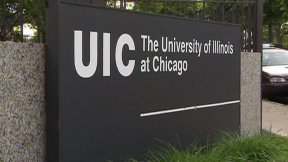
Family members of Henrietta Lacks, a black woman whose cancer cells became one of the most important cell lines in medical history, will be at the University of Illinois at Chicago to discuss the impact of her legacy on medical research. Experts from the UI Health Cancer Center and the National Institutes of Health will talk about efforts to safeguard public trust in research and the cancer center’s participation in the All of Us Research Program. This NIH-funded program is a historic effort to gather data from more than one million people living in the United States to develop population-specific treatments for disease and to improve health. The HBO film “The Immortal Life of Henrietta Lacks,” starring Oprah Winfrey, will be screened and copies of the book by Rebecca Skloot will be available for purchase and signature by Lacks family members.

Henrietta Lacks (1920 – 1951) was a black woman whose cancer cells were the source of the HeLa cell line, the first immortalized cell line to be used in medical research. Lacks was not asked if her cells could be used, nor did she receive any financial compensation for her cells or the discoveries they enabled, including chemotherapy, the polio vaccine and genetic mapping. In fact, Lacks was unaware her cells were being used in countless medical experiments. Her family only became aware of HeLa cells in 1975. In the last few decades, and even more so after the publication of the biography, “The Immortal Life of Henrietta Lacks” by Rebecca Skloot (2010) on which the HBO film is based, Lacks’ story has become more well-known. The Lacks family, community and special guests will discuss the importance of diverse populations participating in clinical research and what academic and medical partners can do to increase trust and engagement with the community, in advance of the start of enrollment for All of Us, which will begin this fall.










